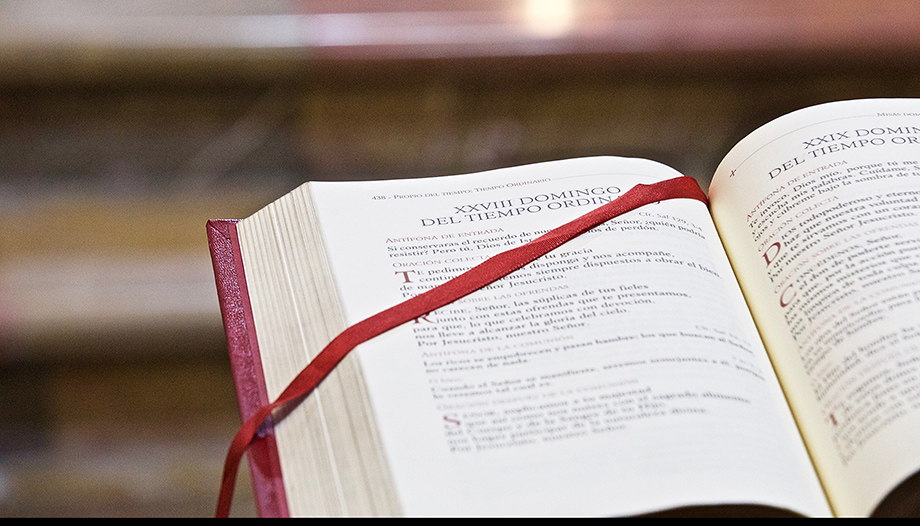Caring for sheep is demanding and all-consuming. And as weak and sinful as we are, we all feel a sense of responsibility and tenderness toward those in our care: "If you then, who are evil, know how to give good things to your children." (Lk 11:13). We are both sheep and shepherds.
Certainly, we are sheep, and when Jesus looked at the crowds, as today's Gospel teaches us, and saw them as sheep without a shepherd, he also had us in mind. Therefore, He, the Good Shepherd, has given us shepherds, most especially in the Pope, to whom He entrusted primarily the care of the sheep (cf. Jn 21:15-17).
We have to recognize ourselves as sheep, and this is part of our humility. We are in great need of protection and there are many wolves and beasts out there eager to devour us (cf. Jn 10:12; 1 Pet 5:8). If we accept that we need the care of the Good Shepherd, he will keep us safe in his sheepfold (Jn 10:1-16), give us shepherds to guide us and teach us at length, as he taught the multitude.
But we are also shepherds and this means that we must bear the burden of caring for others, whether we are parents, exercise spiritual authority in the Church or simply feel responsibility for siblings, friends, colleagues or subordinates at work.
"Woe to the shepherds who scatter and let the sheep of my flock go astray"-oracle of the Lord.-Jeremiah teaches in the first reading. Woe even to negligent shepherds, so preoccupied with their own comfort that they neglect the sheep in their care. As Cain had to learn, yes, we are our brother's keeper (Gen 4:9). Rather, let us aspire to be among those good shepherds whom God promises, through Jeremiah, to raise up to care for and feed his flock. We are good shepherds when we are good fathers, good priests, good friends or brothers, and good bosses or colleagues.
But, as in the case of Jesus, this will require the loss of personal time and comfort. Jesus had heard of the death of John the Baptist and, no doubt, this was one of the reasons he wanted to withdraw his disciples to a solitary place. He wanted to have time to mourn the death of his friend. He also wanted to spend time with his disciples to help them process and celebrate their early successes in the work of evangelization. Jesus wanted time and space to both mourn and rejoice. Neither was granted. The crowds came and that was the end of his rest. However, he generously taught them "many things". This is to be a shepherd after the heart of Christ: to be willing to give up legitimate rest and self-care when the care of others requires it.
Homily on the readings of Sunday 16th Sunday in Ordinary Time (B)
The priest Luis Herrera Campo offers its nanomiliaA short one-minute reflection for these Sunday readings.








